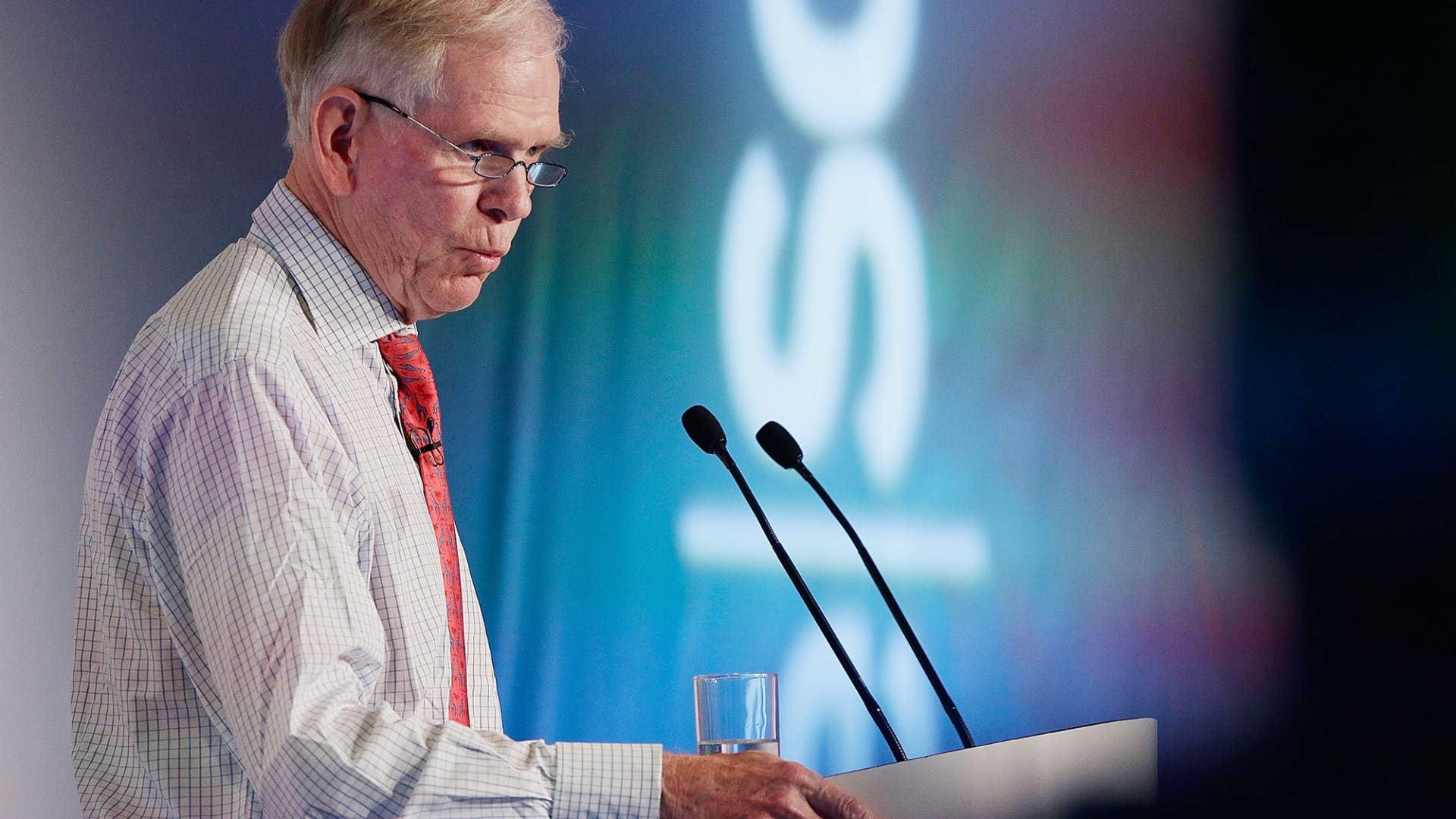
Jeremy Grantham, famed investor with a history of calling bear markets, issued a bearish long-term outlook for the stock market on Tuesday, seeing the dramatic rally in artificial intelligence-related stocks as a speculative bubble. “The long-run prospects for the broad U.S. stock market here look as poor as almost any other time in history,” Grantham said in a blog post released by Boston-based Grantham, Mayo, Van Otterloo & Co. Grantham, who co-founded GMO in 1977, is a widely-followed investor and market historian with a track record of identifying market bubbles. He foresaw the dot-com bubble bursting in 2000 and the 2008 bear market, and he also correctly called the bear market in 2022. The veteran investor pointed to the Shiller price-to-earnings ratio — a valuation metric — as well as company profits, which both sit near record levels. “Remember, if margins and multiples are both at record levels at the same time, it really is double counting and double jeopardy — for waiting somewhere in the future is another July 1982 or March 2009 with simultaneous record low multiples and badly depressed margins,” Grantham said. The S & P 500 has rallied since late October 2023 to hit consecutive record highs, powered by megacap technology names. The equity benchmark is up 8% in 2024. Dominant AI chipmaker Nvidia has rallied another 81% this year, following a near 240% advance in 2023. Grantham thinks even though AI could end up being a game-changing technology for the world, the instant rallies in these stocks on hopes of the long-term potential may not be justified. “Every technological revolution like this — going back from the internet to telephones, railroads, or canals — has been accompanied by early massive hype and a stock market bubble as investors focus on the ultimate possibilities of the technology, pricing most of the very long-term potential immediately into current market prices,” he said. Grantham, now 85, believes the full effects of technological revolutions like AI often don’t materialize until after an initial bubble bursts. “Many such revolutions are in the end often as transformative as those early investors could see and sometimes even more so — but only after a substantial period of disappointment during which the initial bubble bursts,” he wrote.
